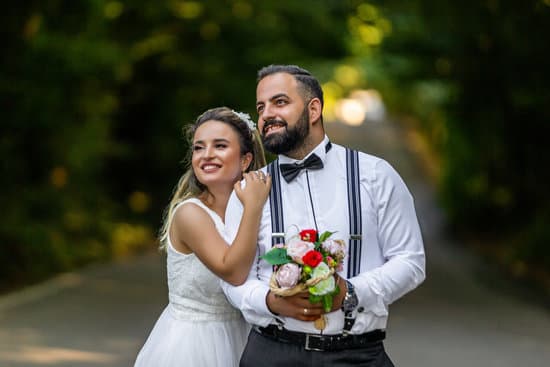What does the groom pay for a wedding? This question often arises as couples navigate through the process of planning and budgeting for their big day. It’s important to understand the traditional roles and responsibilities when it comes to wedding expenses, particularly those of the groom. In this article, we will delve into the financial responsibilities typically shouldered by the groom in preparation for the wedding.
The groom’s involvement in wedding preparations goes beyond just showing up on the day of the ceremony. Traditionally, grooms have specific financial responsibilities that come with planning and executing a successful wedding event. Understanding these responsibilities is crucial for both the bride and groom as they work together to create a memorable celebration.
In addition to discussing the traditional role of grooms in covering certain wedding expenses, we will also explore how modern couples approach cost-sharing and budgeting for their weddings. From attire and pre-wedding events to unexpected last-minute costs, we will provide insights and tips to help grooms navigate their financial contributions effectively while ensuring a memorable and joyous celebration.
The Groom’s Traditional Role in Wedding Expenses
The groom’s role in wedding expenses has traditionally been to cover specific costs associated with the ceremony and reception. While modern couples often choose to split expenses more evenly, it’s important to understand the traditional financial responsibilities that have been placed on the groom.
Engagement and Wedding Rings
One of the most symbolic financial responsibilities of the groom is purchasing both engagement and wedding rings. The engagement ring is typically purchased before the wedding, while the wedding bands are bought at a later time. It’s essential for the groom to factor these costs into his budget early on in the wedding planning process.
Marriage License and Officiant Fees
In many cultures, it is customary for the groom to bear the expenses related to obtaining a marriage license as well as fees for an officiant or civil celebrant who will oversee the wedding ceremony. These costs can vary depending on location and religious or cultural preferences, so it’s crucial for grooms to research these expenses ahead of time.
Honeymoon Costs
Traditionally, it has been common for grooms to take responsibility for planning and covering honeymoon expenses. This includes travel, accommodations, dining, activities, and transportation during the post-wedding getaway. However, with modern couples often sharing honeymoon costs equally or handling them together, it’s important for grooms to discuss these arrangements openly with their partners prior to making any financial decisions.
Cost Sharing
When it comes to wedding expenses, tradition often dictates that the bride’s family covers the majority of the costs. However, in modern times, many couples opt to share the financial responsibilities of their wedding. This leads to the question: what does the groom pay for a wedding? While there are no hard and fast rules, there are certain expenses that are traditionally expected to be covered by the groom.
Here are some typical expenses that the groom may be expected to cover:
- Wedding bands: The groom traditionally pays for both his wedding band and the bride’s engagement ring
- Marriage license and officiant fees
- Transportation: The groom usually arranges and pays for transportation on the day of the wedding
In addition to these traditional expectations, modern couples may choose to divide other costs such as flowers, photography, and entertainment. It is important for couples to have an open discussion about their individual financial situations and come up with a plan that works for both parties.
Ultimately, the most important thing is for couples to communicate openly about their financial expectations and come up with a budget that makes sense for both partners. By working together and being transparent about finances from the start, couples can set themselves up for a strong financial future as they embark on married life together.
Additional Costs
Setting the Wedding Budget Together
When it comes to wedding planning, setting a budget is crucial for ensuring that both the bride and groom’s financial responsibilities are taken into account. While traditionally, the bride’s family may have covered most of the wedding expenses, modern couples often share these costs. The groom should be actively involved in establishing the budget, taking into account his financial capabilities and contributions.
Financial Contributions to Vendor Services
In addition to sharing the overall wedding expenses, the groom may also be responsible for specific vendor services. This can include covering the costs of transportation, lodging, or providing a deposit for certain services. It’s important for couples to discuss these financial responsibilities openly and come to a mutual agreement on how they will be managed.
Emergency Fund for Unexpected Costs
It’s not uncommon for unexpected expenses to arise during wedding planning. From last-minute alterations to unforeseen vendor fees, having an emergency fund set aside can help alleviate stress when these costs come up. The groom should consider contributing to this fund as part of his overall financial responsibilities for the wedding. By being prepared for unexpected expenses, couples can navigate through potential challenges without major financial strain.
By addressing additional costs and setting a clear wedding budget with the groom in mind, couples can approach their wedding planning with transparency and shared responsibility. This ensures that both partners feel empowered when making financial decisions and contributes to a more harmonious planning process.
The Groom’s Attire and Groomsmen Expenses
When it comes to a wedding, the groom’s attire is an essential part of the celebration. Traditionally, the groom is responsible for covering the costs of his own attire, as well as that of his groomsmen. This includes purchasing or renting a tuxedo or suit, shoes, accessories, and grooming services such as haircuts and shaves. The cost can vary depending on the level of formality and personal preferences, but it’s important for the groom to budget accordingly.
In addition to the groom’s attire, there are also expenses associated with outfitting the groomsmen. This may include matching suits or tuxedos, ties or bowties, and accessories. It’s common for grooms to cover at least part of these costs as a thank-you gesture to their groomsmen for participating in the wedding. Open communication with both the groomsmen and their significant others is crucial in determining what each individual will be comfortable contributing financially.
It’s crucial for grooms to consider these expenses when budgeting for their wedding. Setting aside funds specifically for attire and grooming needs will help prevent any last-minute financial strain. By having open conversations with both their partner and their wedding party about expectations and budgets, grooms can ensure that everyone involved understands their financial responsibilities.
The Groom’s Financial Contributions to Pre-Wedding Events
Pre-wedding events are an important part of the wedding celebration and the groom may be expected to contribute financially to these events. It is essential for the groom to understand his financial responsibilities when it comes to pre-wedding events, as these occasions can also incur costs. Here are some key pre-wedding events that the groom may need to financially contribute to:
- Engagement Party: Traditionally, the groom’s family might host an engagement party. The cost of this event could include venue rental, catering, and decorations. The groom should discuss with his family about their expectations and budget for the engagement party.
- Bachelor Party: The groom is typically responsible for covering his own expenses during the bachelor party. However, it’s customary for the best man and groomsmen to cover the cost of activities, accommodations, and meals during this event.
- Rehearsal Dinner: The groom often shares the responsibility of hosting and paying for the rehearsal dinner with his family or in some cases, with both families contributing equally. This includes expenses such as food, beverages, venue rental, and any entertainment or decorations.
It is crucial for the groom to communicate with his partner and both families about their expectations regarding pre-wedding events. Open communication can help avoid misunderstandings about who will be covering which expenses.
Ultimately, understanding financial contributions to pre-wedding events is an important aspect of wedding planning for the groom. By discussing budgeting and expenses openly with all parties involved, the stress of managing these costs can be minimized and everyone can enjoy these special occasions leading up to the big day.
Unexpected Expenses
When it comes to wedding planning, unexpected expenses are almost inevitable. As the groom, it’s important to be prepared for these last-minute costs and factor them into your overall budget. One of the best ways to handle unexpected expenses is to set aside a portion of your budget specifically for this purpose. This will ensure that you have some financial cushion to cover any surprises that may come up as you plan for the big day.
Some examples of unexpected wedding expenses that the groom may need to contribute to include additional décor or floral arrangements, last-minute alterations to attire, extra transportation fees, and unforeseen vendor charges. By anticipating these potential costs and allocating funds accordingly, you can avoid unnecessary stress and financial strain as you approach your wedding day.
In addition to setting aside a contingency fund, open communication with your partner and other family members involved in the planning process is key. This will help ensure that everyone is on the same page when it comes to budgeting for unexpected expenses. By being proactive and transparent about potential last-minute costs, you can navigate any surprises that arise with greater ease and confidence.
| Unexpected Expenses | Examples |
|---|---|
| Additional Décor or Floral Arrangements | Last-Minute Alterations to Attire |
| Extra Transportation Fees | Unforeseen Vendor Charges |
Budgeting Tips for the Groom
When it comes to wedding expenses, it’s important for the groom to understand his financial responsibilities and take an active role in budgeting. To make the most of wedding expenses, the groom can follow a few budgeting tips that will help ensure that every dollar is well-spent and that they stay within their financial means.
One important budgeting tip for the groom is to prioritize what they are willing to spend more on and where they can cut costs. For example, if having an extravagant venue is a top priority, then they may need to consider cutting costs in other areas such as decorations or entertainment. By identifying priorities early on, the groom can allocate their budget more effectively.
Another helpful tip for grooms is to negotiate with vendors. Whether it’s for the venue, catering, or flowers, grooms should not be afraid to ask for discounts or price matching. Many vendors are willing to negotiate prices, especially if you are booking multiple services with them.
Lastly, grooms should consider setting up a separate wedding bank account. This will help keep track of expenses and prevent overspending. By setting up a dedicated account specifically for wedding expenses, it will be easier to manage their budget and avoid any financial stress down the road.
By following these budgeting tips, grooms can ensure that they are making the most of their wedding expenses while still creating a memorable and beautiful celebration. It’s important for grooms to be proactive in managing wedding finances and communicating openly with their partner about budgeting priorities and limitations.
Conclusion
In conclusion, it is evident that the groom plays a significant role in the financial responsibilities for the wedding. Traditional expectations may dictate certain costs that fall to the groom, such as the engagement ring and honeymoon expenses. However, modern couples often share the financial burden and make decisions together regarding budgeting for the wedding. Open communication and financial planning are essential for the groom to navigate through the complexities of wedding preparations.
Setting a wedding budget with the groom in mind is crucial to ensure that all expenses are accounted for. From attire and grooming expenses to contributions to pre-wedding events, it is important for couples to discuss and plan their finances together. Additionally, being prepared for unexpected last-minute costs can alleviate stress and avoid any financial strain on the couple.
Overall, by openly discussing and planning their finances, the bride and groom can work together to create a memorable wedding day without unnecessary financial burden. With careful budgeting and communication, couples can make the most of their wedding expenses while ensuring that both parties feel financially secure.
It’s not just about what does the groom pay for a wedding, but more about how both partners can responsibly manage their finances as they embark on this new chapter of their lives together.
Frequently Asked Questions
What Does a Groom Pay for at a Wedding?
The groom typically pays for the wedding bands, the marriage license, the officiant’s fee, and the bride’s bouquet. In some cases, he may also cover the cost of the honeymoon or transportation for the bridal party.
What Are Groom’s Responsible for in the Wedding?
The groom is responsible for making sure his groomsmen have their attire and accessories, attending pre-wedding events like engagement parties and rehearsals, and giving a heartfelt speech at the reception. He should also be involved in making important decisions about the ceremony and reception.
What Is the Money Paid by the Groom to the Bride’s Family?
The money paid by the groom to the bride’s family is traditionally called a dowry or bride price. This custom varies by culture and may not be practiced in all weddings. It is meant to symbolize the groom’s commitment to taking care of his new wife.

I have been involved in marriages for over 20 years helping couples and singles understand more about them.





